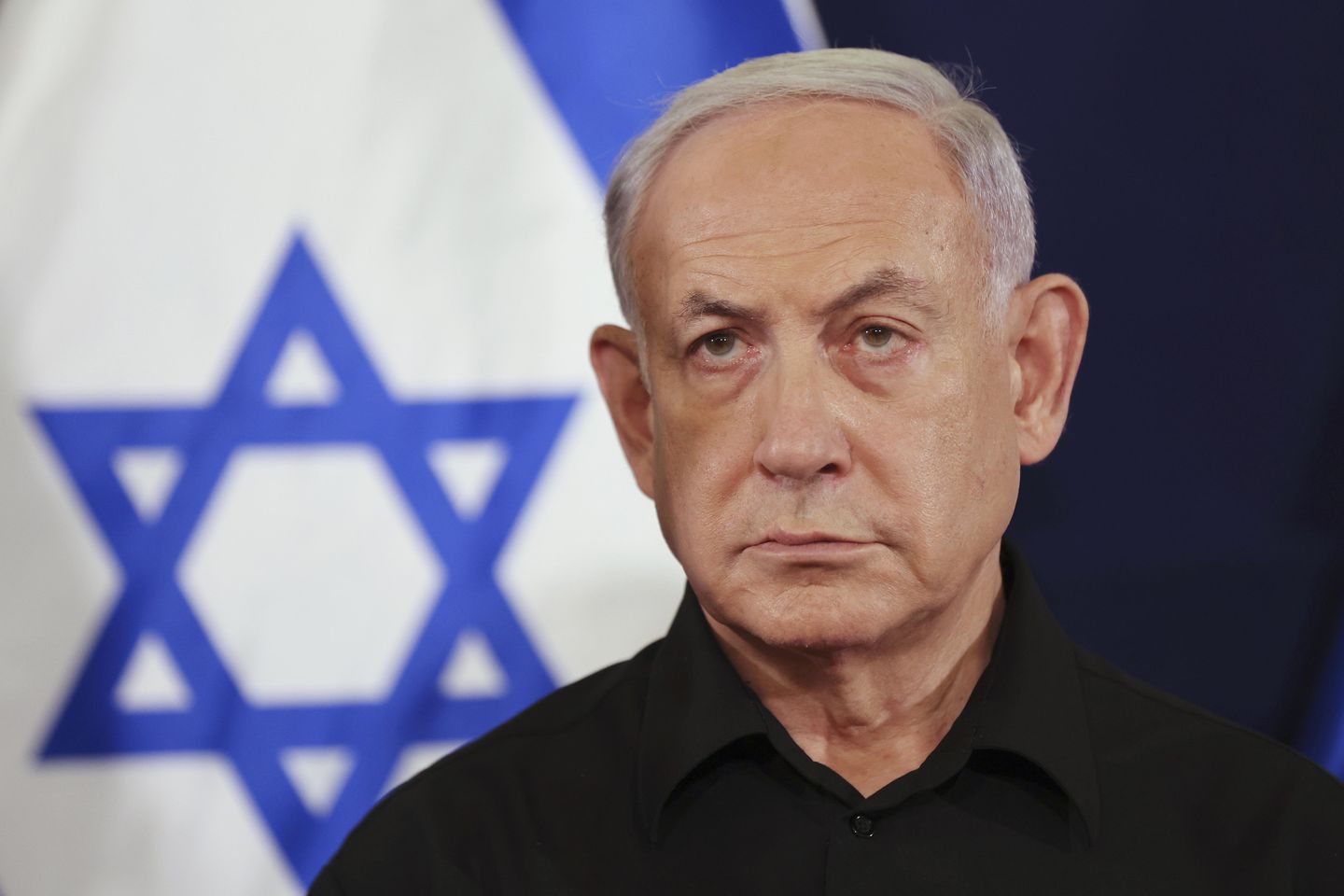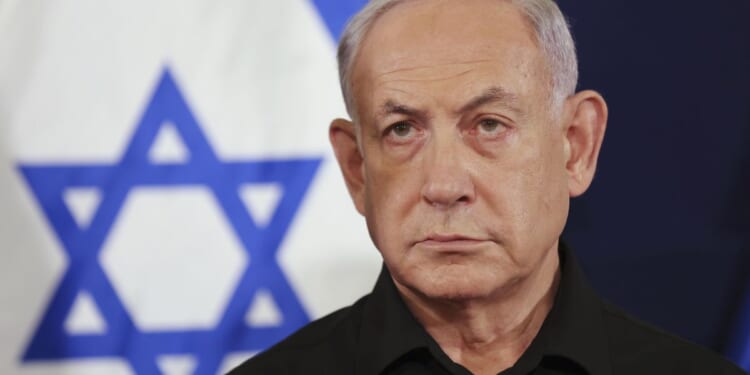
Israeli Prime Minister Benjamin Netanyahu said Sunday that his government will close the Qatar-based news channel Al Jazeera‘s operations inside Israel, confiscate the network’s broadcast equipment, and block access to its website.
It is believed to be the first time Israel has forcibly closed a major foreign news network and it is the culmination of a long-running feud between the channel and Mr. Netanyahu’s government. The Israeli prime minister, along with other Israeli officials, have accused Al Jazeera of an extreme anti-Israel bias and even suggested that the network participated in the Oct. 7 Hamas terrorist attack on Israel.
The network has vehemently denied those charges. Still, Mr. Netanyahu said his government decided it had little choice but to shutter the channel’s operations inside Israel.
“The government headed by me unanimously decided: the incitement channel Al Jazeera will be closed in Israel,” Mr. Netanyahu posted on X.
His spokesperson to the Arab world, Ofir Gendelman, elaborated on the decision and what it will mean for the network, its correspondents, and its operations.
“The government unanimously approved the closure of Al Jazeera‘s offices in Israel. This decision will be implemented immediately, according to which broadcast equipment will be confiscated, the channel’s correspondents will be prevented from working, the channel will be removed from cable and satellite television companies, and Al Jazeera‘s websites will be blocked on the internet,” Mr. Gendelman said in a social media post.
The news channel did not immediately comment on the move.
The Israeli Knesset on April 1 passed a law giving the government the power to shut down foreign news networks deemed a security risk. The law passed by a vote of 71-10. At the time, Al Jazeera blasted the measure.
“Netanyahu could not find any justifications to offer the world for his ongoing attacks on Al Jazeera and press freedom except to present new lies and inflammatory slanders against the network and the rights of its employees,” the network said in a statement.
“Al Jazeera reiterates that such slanderous accusations will not deter us from continuing our bold and professional coverage, and reserves the right to pursue every legal step,” it said.
After the April 1 law passed, the White House also expressed concerns about the extraordinary move.
“We believe in freedom of the press. It is critically important and the United States supports the critically important work journalists around the world do,” White House spokesperson Karine Jean-Pierre told reporters at the time. “That includes those who are reporting on the conflict in Gaza. We believe that the work is important [and] that freedom of the press is important.”
Israel has long had a rocky relationship with Al Jazeera, accusing it of deep-seated bias. Relations took a major downturn nearly two years ago when Al Jazeera correspondent Shireen Abu Akleh was killed during an Israeli military raid in the occupied West Bank.
The relationship soured further after Oct. 7, when the Palestinian terrorist group Hamas launched an attack on Israel that killed 1,200 Israelis and resulted in the taking of more than 250 hostages.
In the weeks after, Israel launched a major military operation in Gaza designed to crush Hamas. Al Jazeera employees have at times been caught in the crossfire. In December, an Israeli strike killed an Al Jazeera cameraman as he reported on the war in southern Gaza. The channel’s bureau chief in Gaza, Wael Dahdouh, was injured in the same attack, according to the Associated Press.
The network has been one of the few major media outlets to provide regular coverage from inside Gaza, now one of the most dangerous war zones in the world.
The channel is funded by the Qatari government. Sunday’s decision by Israel could further strain relations between Israel and Qatar at a crucial moment in negotiations with Hamas over a proposed deal to release some of the hostages still held by the group.
Qatar for months has been a key intermediary between Israel and Hamas, and played a leading role in previous deals that led to the release of some hostages in exchange for brief cease-fires in Gaza.
In the past, Al Jazeera has been closed or blocked by other Mideast governments. Those include Saudi Arabia, Jordan, the United Arab Emirates and Bahrain during a yearslong boycott of Doha by the countries amid a yearslong political dispute that ended in 2021, according to the AP.
On its website, the network says: “Al Jazeera Media Network is ideally placed on the world stage with its headquarters in the Arab world, with over 70 bureaus around the globe, and more than 3,000 employees from more than 95 countries. Al Jazeera has extensive reach across the globe and is available in over 150 countries and territories in more than 430 million homes. Al Jazeera is an independent news organisation funded in part by the Qatari government.”
• This article is based in part on wire service reports.












